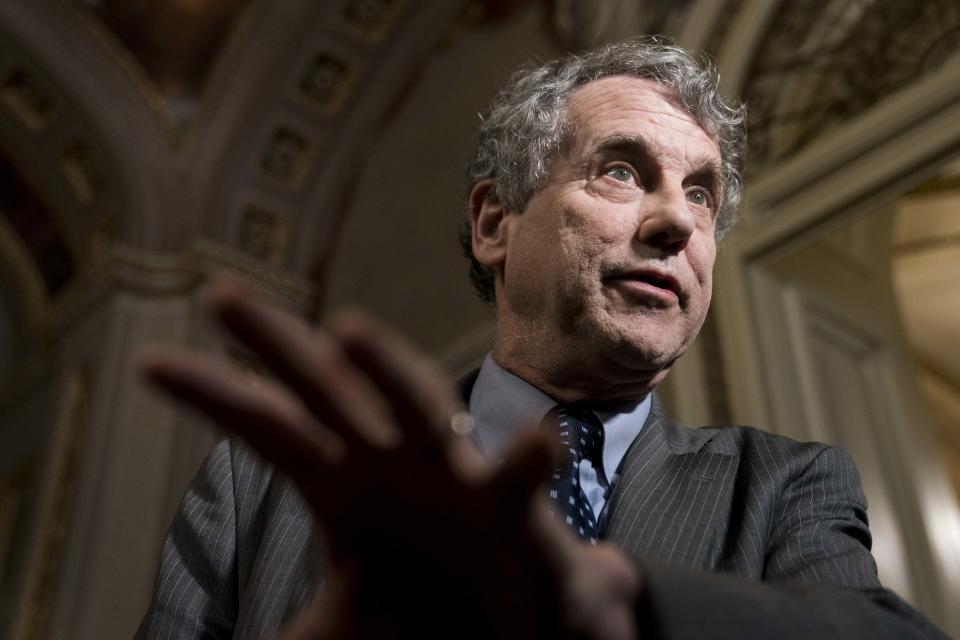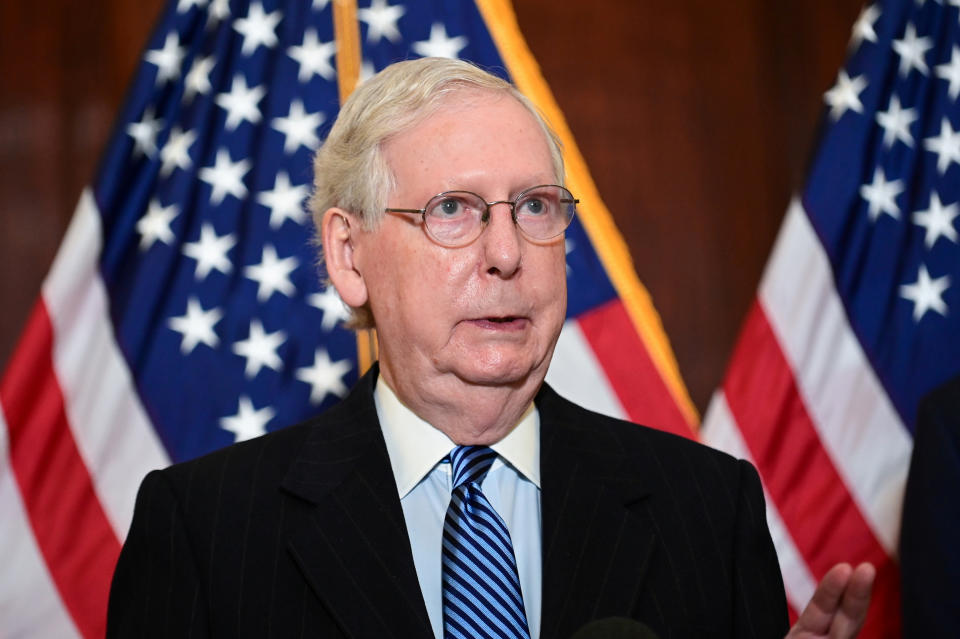'The American public can’t wait two more months' for a new coronavirus stimulus deal, Ohio senator says
Senator Sherrod Brown (D-OH) urged Congress to pass a stimulus deal before President-elect Biden’s inauguration as Americans are facing increasing economic hardships.
“The American public can’t wait two more months until Congress acts,” Brown told Yahoo Finance Live (video above). “We've got to help unemployed workers. We've got to help people so they aren't evicted from their apartments or have their electricity cut off.”
Stimulus negotiations stalled before the presidential election, and Democrats and Republicans have not returned to actively negotiating a stimulus package. The two parties came close on the deal’s price tag with House Speaker Nancy Pelosi’s (D-CA) latest stimulus offer being $2.2 trillion and the White House’s proposal going up to “almost $1.9 trillion.”

‘Something smaller ... is more appropriate’
Negotiations have shifted from being between the White House and Democrats to leading Republicans and Democrats, which opens a big gap between the two proposals — the latest proposal by Senate Majority Leader Mitch McConnell (R-KY) was worth just $500 billion while Treasury Secretary Steven Mnuchin’s most recent offer reached nearly $1.9 trillion.
If a deal is not reached by the end of the year, even more of the relief provisions will expire leaving Americans with limited government support this winter. Around 13.5 million Americans are expected to lose unemployment benefits coverage as the Pandemic Unemployment Assistance (PUA) and the Pandemic Emergency Unemployment Compensation (PEUC) programs expire.
Read more: Here’s what you need to know about unemployment benefits eligibility
“Our economy is really moving to get back on its feet,” McConnell told reporters in Kentucky last week. “That I think clearly ought to affect what size of any rescue package we additionally do. Something smaller, rather than throwing another $3 trillion at this issue, is more appropriate.”
McConnell reiterated his point on Thursday saying he’s not interested in a “dramatically larger' stimulus package. But Senate Minority Leader Chuck Schumer (D-NY) asserted that McConnell “sticking to his emaciated bill” is a “non-starter,” especially given that the bill was rejected twice in the GOP-controlled Senate, he told reporters on Thursday.

‘Thousands of people a day are dropping into poverty’
The two parties both expressed a desire to work on a deal during the lame-duck session or the months before President-elect Biden’s inauguration, but serious disagreements remain.
Goldman Sachs sees a stimulus deal happening in early 2021, rather than the lame-duck session, and being in the range of $1 trillion rather than $1.9-2.2 trillion, the banks said in a note on Thursday.
"If stimulus passage is pushed into early 2021,” the note added, “the outcome will be more dependent on progress controlling virus spread and distributing a vaccine."
That said, a two-month wait may be too long for many Americans experiencing financial hardship.
“Thousands of people a day are dropping into poverty,” Brown said. “The government's actions kept millions out of poverty earlier in the spring and summer and we need to act again.”
Between 6 and 8 million more Americans have fallen below the poverty threshold since May, two similar studies from Columbia University and the University of Chicago and Notre Dame recently found.
Along with rising poverty, millions of Americans are facing housing and food insecurity, the risk of utility shutoffs and eviction with temporary moratoriums expiring, and potentially long-term unemployment while COVID cases are rising across the country.
“I worry most about the wave of evictions and the wave of gas and electric cut-offs,” Brown said. “Going into the winter in a state like Ohio — as cold as it gets — in the midst of a pandemic doing nothing is just immoral.”
Denitsa is a writer for Yahoo Finance and Cashay, a new personal finance website. Follow her on Twitter @denitsa_tsekova.
Read more:
Follow Yahoo Finance on Twitter, Facebook, Instagram, Flipboard, SmartNews, LinkedIn, YouTube, and Reddit.

 money
money 

